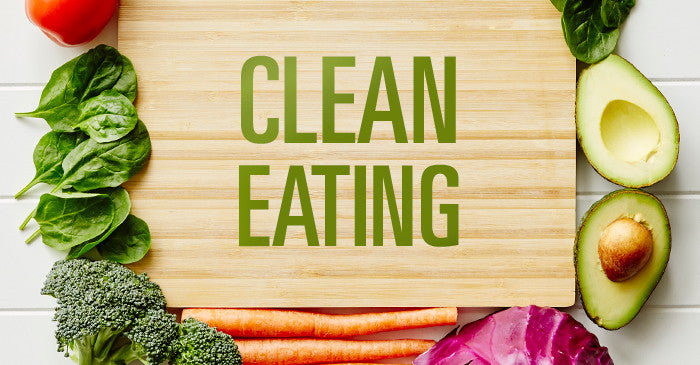
What is a clean diet?
Clean eating is one of those phrases that is being thrown about a lot at the moment, but what does it actually mean?
Clean eating is a very simple concept and involves eating wholesome foods that haven't been processed. That means eating whole foods like fruit and vegetables instead of foods that have been made in a factory like chocolate and biscuits. A simple way to test if a food is 'clean' is to ask yourself if it occurs in nature. If it does, it's clean! Eat plenty of it. If the food is more of an 'edible food-like substance' and does not occur naturally, you should avoid it. That's it!
What are the benefits of clean eating?
The following are the benefits of clean eating as compared to a diet including refined sugar, hydrogenated fats, and chemicals.
- Reduced risk of developing Type II diabetes
- Reduced risk of heart disease and other vital organ diseases
- Clearer skin
- Healthier hair
- Better breath
- Longer life expectancy
- Improved mobility
- More balanced hormones
- Less mood swings
- Stronger immune system
How do I eat clean to lose weight?
Eating clean doesn't put restrictions on how much you can eat, but done sensibly, it can help you lose weight. More than that, it can actually help boost your immune system and build muscle more efficiently.
Clean foods tend to be more nutrient-rich and less calorie-dense than processed foods, which means you can eat a larger volume of food yet consume less calories which will inevitably lead to weight loss. This will also mean you feel more satisfied after you eat.
Ever get that feeling of guilt after you eat junk food? Or that feeling of greasiness and bloating after a big pizza? Eating clean won't leave you feeling like that but you will still feel satisfied!
When you go shopping it can be easy to get lured into the bargains of fattier foods. Supermarkets tend to put deals on unhealthy food which will encourage you to buy more. Write a shopping list before you go and stick to it no matter what.
Which foods should I avoid?
As a general rule, if a food falls into one (or more) of the following categories, you should try to avoid it.
- If the food comes in a packet
- If the expiration date is longer than 2 weeks
- If you can't pronounce the ingredients
- If you wouldn't be able to recreate it in your own kitchen (or garden)
- If it does not occur in nature
- If you wouldn't feed it to a small child


